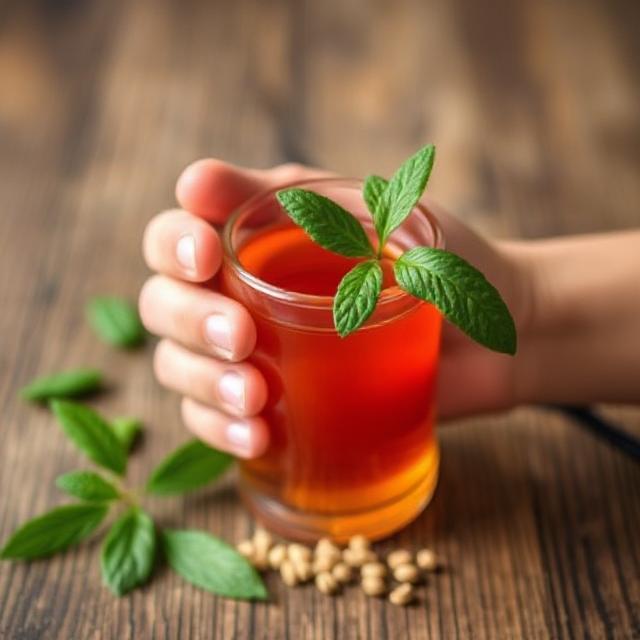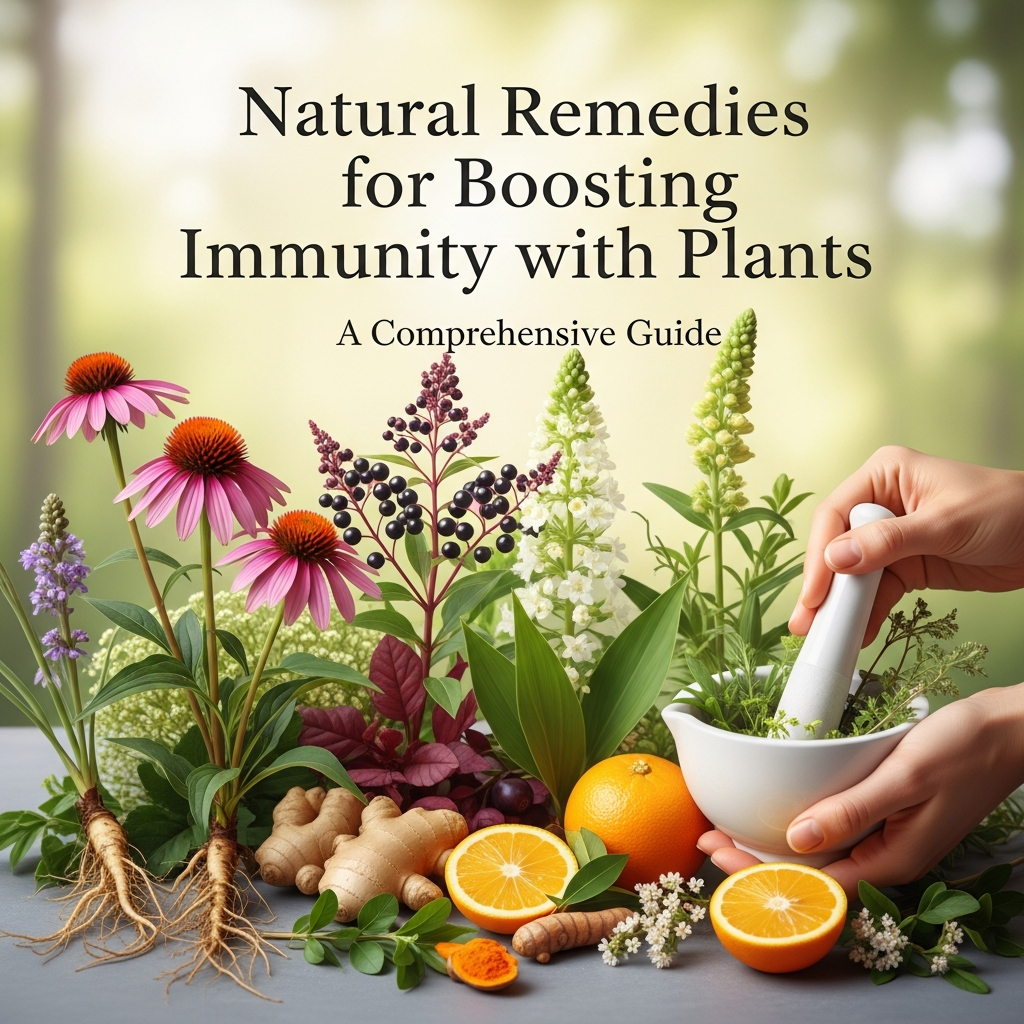

Introduction

This blog article will discuss about an Ayurvedic remedies for high blood pressure. Hypertension, or high blood pressure, is a frequent health concern that can affect your health without you ever knowing it. A lot of people desire to heal themselves in natural ways, even when modern medicine has answers. This blog post will talk about 15 Ayurvedic treatments that might help lower high blood pressure without the use of medicines.
Ayurveda is an old Indian way of healing that tries to provide balance to your body and your life. These treatments are simple to use, act on the whole body, and can be added to your daily routine to improve your heart health, lessen your stress, and make you healthier overall.
Explore more natural health advice and healing tips in our Nature’s & Healing category at Health Tips To You, your trusted source for wellness.
Understanding Ayurvedic Remedies for High Blood Pressure
Hypertension, or high blood pressure, happens when blood pushes too forcefully against the walls of your arteries. This could have an effect on your body and heart over time. Ayurvedic treatments for high blood pressure use natural approaches to keep the body in balance. You should know what causes this condition, what indicators to look for, and how to avoid it.
What Causes High Blood Pressure?
A lot of reasons could cause your blood pressure to rise. Some of these are being overweight, not getting enough exercise, consuming too much alcohol, and eating too much salt. Two health concerns that could be at fault include diabetes and kidney disease. Sometimes, people inherit it from their parents because of their genes.
Symptoms and Warning Signs
Because many people don’t notice any indicators of high blood pressure, it’s often termed a “silent killer.” But recognizing the signs and risks could help you act quickly. Here are some common signs:
-
Headaches
-
Feeling dizzy
-
Shortness of breath
-
Nosebleeds
-
Red or flushed face
What Increases Your Risk?
There are a variety of things that might raise your blood pressure. These are:
- Being too heavy
- Too much sitting
- Smoking
- Eating processed or salty foods
- High blood pressure runs in the family.
Other things to watch for:
- As you become older
- Kidney problems
- The blood has a lot of cholesterol in it.
- Life is stressful
- Too much caffeine or coffee
You can stay healthy if you know what these indications and risks are. If you know what they are, you may start making little changes to keep your blood pressure from going up or to lower it. Ayurveda has easy, natural techniques to make your heart and body healthier.
The Impact of High Blood Pressure on Health
There are about 75 million people in the US who have high blood pressure. It could be incredibly terrible for your health if you don’t take care of it. These include heart difficulties, kidney failure, stroke, and maybe going blind. That’s why you should check your blood pressure often and take steps to keep it under control.
It’s crucial to understand how high blood pressure harms your body in order to minimize the risks. It could hurt your arteries over time and give you a disease called atherosclerosis. Blood can’t move as easily, which makes it more likely that you’ll have a heart attack. If you don’t treat high blood pressure right away, it could hurt your eyes and kidneys, which could cause long-lasting harm.
The Ayurvedic remedies for high blood pressure
Ayurvedic remedies for high blood pressure deal with both the symptoms and the reasons why they happen. Ayurveda says that there are three main forces, or doshas, in the body: Vata, Pitta, and Kapha. These doshas have a big impact on your overall health.
It is crucial to know how these energies affect your body when they are out of balance if you want to keep your blood pressure in check.
Principles of Ayurveda
Ayurveda is a means to heal that helps the body, mind, and spirit. You can stay balanced by eating healthily, working out, and feeling good about yourself. Everyone’s bodily type or constitution is different, hence treatment is different for everyone. Ayurveda says that to lower high blood pressure, you should eat, do, and use treatments that are in line with how your body works naturally.
Dosha Imbalances and Hypertension
Having problems with how your doshas work together can make your blood pressure go up. A lot of the things that happen in the body are affected by these forces. Having too much or too little strength can be bad for your health, just like having high blood pressure. The main reason blood pressure is too strong or weak.
-
Imbalance of pitta (cause of heat) may cause anger, stress, or inflammation. It is the main reason of anger, stress or inflamation . Foods tgat are making cool to body and camlming activities can reduce high blood pressure.
-
Vata imbalance (linked with movement) It may cause anxiety and poor circulation. Rest and warm grounding foods may balance it.
-
Kapha imbalance (linked} It may cause gain weight sluggishness. Everday exercises and light foods can balance it.
Dietary Recommendations
When you take Ayurvedic medicine to lower your blood pressure, you have to be very careful about what you consume. What you eat can change your blood pressure and how you feel in general.
Why a Balanced Diet Important?
vitally crucial for your long-term health to eat whole grains, fresh fruits and veggies, and healthy fats. These foods have things in them that help keep your blood pressure in check.
Key Ayurvedic remedies for high blood pressure.
Ayurvedic therapies for high blood pressure may include foods that are thought to be helpful for your health. Eating these meals might help decrease your blood pressure without the need for medication.
Some herbs and spices that are known to thin the blood, lower inflammation, and improve circulation are ginger, turmeric, and garlic. These can help keep your arteries healthy and lower your blood pressure.
It’s also very vital to eat a lot of fruits and vegetables that are strong in potassium and antioxidants. Here are some good choices:
- Leafy greens
-
Avocados
-
Berries
These foods help the body keep the proper amount of fluids and minimize the stress on the heart.
You can also try Ayurvedic remedies for high blood pressure. like:
-
Hibiscus tea
-
Cumin
-
Coriander
Not only do these things taste better, but they are also good for your heart and make you feel better.
Lifestyle and Dietary Changes
You have to improve your heart health the eating habits should be balanced and sustainable. The following are good eating habits:
-
Eat more vegetables and fruits
-
Should avoid salty and processed foods.
-
Should get rid of overall intake sodium.
Eating healthier foods can be good for your heart and your health in general.
If you want to be successful in the long run, you need to make a strategy that fits your life. Plan your meals, keep track of how much you eat, and eat with a purpose.
Herbal Remedies
We’ve talked about Ayurvedic remedies that have been used for a long time to lower blood pressure and make the heart healthy. For hundreds of years, traditional Ayurvedic medicine has used the healing abilities of herbs to keep people healthy and balanced.
Ashwagandha
Ashwagandha is a well-known adaptogenic herb in Ayurveda. It can help lower blood pressure by decreasing stress and anxiety, which are two of the main causes of high blood pressure. Ashwagandha helps your body deal with stress better, which keeps your heart and blood vessels healthy and in balance.
Arjuna
Ayurvedic medicine also uses the strong plant Arjuna to lower blood pressure. It keeps the heart healthy, decreases blood pressure, and makes the heart’s muscles stronger. The chemical components in Arjuna assist maintain the heart and blood arteries healthy. You can take it as a tincture or powder for the greatest benefits.
Garlic
Garlic is a natural way for many people to lower their blood pressure. It helps the heart by relaxing tight arteries, which lets blood flow more easily and lowers inflammation. Allicin, which is the major element of garlic, is thought to help decrease blood pressure. Before you start taking garlic tablets or adding raw garlic to your food, talk to your doctor to be sure you get the same advantages every time.
Cardamom
Another Ayurvedic remedies for high blood pressure is cardamom. It might help blood vessels relax and make it easier for blood to flow. Cardamom is also a natural diuretic, which means it helps the body get rid of extra salt. This is a key step in lowering blood pressure.
You can consume cardamom or use it in your cooking. This spice is good for your heart since it tastes great and is good for you.
Yoga and Physical Exercise
Every day, doing yoga and other exercises can help you maintain your blood pressure under control. Moving around a lot is important for your health and keeps your heart healthy for a long time.
How Yoga Helps Lower Blood Pressure?
A lot of research has shown that yoga can lower blood pressure. It relieves stress and makes the autonomic nervous system work better, both of which can raise blood pressure. Yoga is also beneficial for your heart and the way your blood flows. It benefits your heart since it makes you aware of your breathing and the objects around you.
Effective Yoga Poses
Some yoga poses could help you relax and get your blood flowing better. These are some great positions to try:
-
Adho Mukha Svanasana (Downward-Facing Dog)
-
Balasana (Child’s Pose)
Child’s Pose (Balasana) These poses help your body and mind relax and stretch. Doing them a lot helps your body deal with stress better, which decreases blood pressure. You feel better in each position because it helps you focus and breathe deeply.
Recommended Yoga Practices
Choose yoga courses that emphasize on slow movements and deep breathing to get the most out of them. Pranayama and other breathing exercises can help you relax and make it easier for oxygen to go to your body.
If you’re new to yoga or have high blood pressure, you might want to try Hatha Yoga or Yin Yoga. These tactics assist you relax and lessen your tension by keeping you in soft, pleasurable positions for a long time. Exercising frequently lowers your blood pressure and keeps you healthy over time.
Stress Management Techniques
If you want to keep your blood pressure in check, you need to learn how to deal with stress. When you’re stressed, your body generates hormones that elevate your blood pressure. It could be excellent for your health and happiness to add items to your daily life that help you relax.
Why Stress Reduction Matters?
Stress can make your blood pressure go up and be terrible for your health. You can lower your blood pressure, feel better, and have a better life in general if you learn how to deal with stress.
Ayurvedic Stress Relief Practices
Ayurveda’s main goal is to help people relax by bringing their bodies and minds back into balance. You might be able to relax and calm down by changing your food, lifestyle, and using natural therapies. Yoga, self-massage (abhyanga), and medicines like brahmi and ashwagandha are some of the most common Ayurvedic ways to calm the mind.
Eating nutritious grains, fresh fruits, and veggies is another way to feel better and lower stress.
Meditation and Breathing Exercises
Deep breathing and meditation are two great ways to relax. Mindfulness meditation can help you relax and get to know yourself better. Deep breathing can help you relax, which can drop your blood pressure and make you feel less stressed.
Every day, even if it’s just for a few minutes, meditate and do breathing exercises. You will be better able to handle stress if you do these things often. This could help keep your blood pressure in a healthy level and make you feel better overall.
Additional Ayurvedic Therapies
Ayurvedic medicine can lower blood pressure by fixing the conditions that cause it and making people healthier overall.
Panchakarma
Panchakarma is a group of cleaning treatments that help the body get rid of impurities and come back to normal. These treatments strive to lower blood pressure by getting rid of toxins, speeding up blood flow, and calming the nervous system.
Abhyanga (Oil Massage)
Abhyanga is a kind of therapeutic oil massage that decreases stress and gets blood moving. This helps keep blood pressure under control. It is good for your skin and helps you relax to mix herbs with natural oils like coconut or sesame oil. Practicing regularly can assist your heart and blood vessels relax and lessen your stress.
Seasonal Therapies
Abhyanga is a kind of oil massage that speeds up blood flow, which lowers stress and blood pressure. Natural oils and herbs, such sesame and coconut, are healthy for your skin and can help you relax. Exercising consistently will help you deal with stress and relax your heart and blood vessels.
Conclusion
You will find fifteen Ayurvedic remedies for high blood pressurein this book. That is what it’s actually meant to do. It is the goal of this guide to help you become more independent and take charge of your own health, two things that are very important to you. By making these natural changes to your daily life, you will be able to lower your blood pressure and live a healthier life.
Because of this, you will be able to get the results you want. An important benefit is that you can get all of these benefits at the same time. People who follow the rules set out in Ayurveda will be able to come up with thoughts that are based on what they have seen and done in the real world. Not only will the quality of your life get better, but your health will also change.
FAQs
Q. What are some Ayurvedic Remedies for High Blood Pressure that work for high blood pressure?
A: Ayurveda has a variety of natural ways to help persons with high blood pressure. Here are some good options:
- Garlic: The Garlic is very good ingredient ingarlic supplements and raw garlic may useful for reduce blood pressfure by making better blood flow
- The drinking of hibiscus tea daily may reduce blood pressure from it gives vitamins those are very good for the heart,
- The adaptogenic plant is Ashwagandha. It can help you to help with worry, stress both of which can controle your blodd pressure.
Q. How could changing your home help Ayurvedic therapies for high blood pressure?
A: Ayurvedic medicines and changing your lifestyle are both vital parts of dealing with high blood pressure. Here are some ideas:
- Eating a healthy, balanced diet with a lot of fruits, vegetables, and whole grains and not too much salt will help lower your blood pressure.
- Doing yoga, walking, or swimming on a regular basis will lower your blood pressure and make you healthier in general.
10 Causes of High Blood Pressure & Treatment
Q. What do you need to know about using Ayurvedic medication to bring down your blood pressure?
A. Ayurvedic treatments are generally safe, but you should keep these points in mind:
- Before you start taking any new medicine, you should always talk to your doctor, especially if you are already taking prescription for high blood pressure.
- Be careful how much of a plant or supplement you take, because taking too much might be bad for your health.
- Look after your health: You should check your blood pressure often to see how well the medicine is working.
Related Content:
- 8 Rapid Hair Growth Herbals You Should Try
- 15 Ayurvedic Remedies for High Blood Pressure
- Aromatherapy for Stress Relief and Relaxation: A Comprehensive Guide
- Natural Remedies for Boosting Immunity with Plants: A Comprehensive Guide
- How Nature Walks Can Improve Physical Health: A Comprehensive Guide
- 7 Healing Herbs for Boosting Energy Naturally: A Comprehensive Guide
- Benefits of Outdoor Activities for Mental Health: A Comprehensive Guide
- Best Superfoods Revealed: Truth Behind Nutrient Powerhouses
- Check our Blog and Category page (Nature’s & Healing)
- 12 Best Ways To Lower Blood Pressure
- 9 Benefits of Yoga for Holistic Health and Well-Being
- 7 Simple Health Changes to Reduce The Risk of Chronic Disease
- 10 Causes of Low Blood Pressure




























































